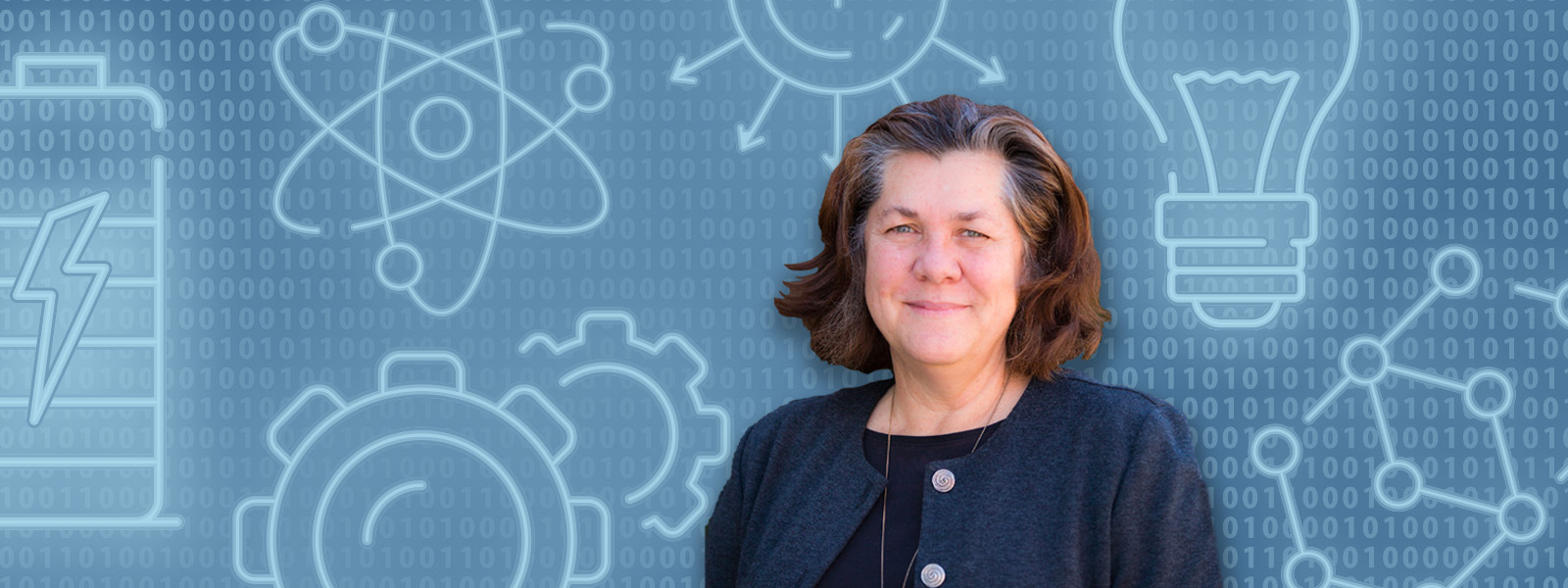Nancy Ruzycki’s Summer Science Camps Continue to Empower Young Scientists
Artificial Intelligence (AI) is a rapidly advancing technology with rapidly expanding applications in the workforce. Currently, however, there is a shortage of materials for both teaching and learning AI.
To address this gap, in 2022, Nancy Ruzycki, Ph.D., an instructional associate professor in the Department of Materials Science & Engineering and principal investigator on the UF Engaging Quality Instruction through Professional Development EQuIPD grant, initiated the Goldberg Gator Engineering Explorers (GGEE) Summer Program. Launched with the help of a $200,000 gift from alumnus Arnold Goldberg (BS CS ‘90), the GGEE Summer Program is geared to shine a spotlight on students’ potential as future engineers by enhancing their skills and providing a learning environment filled with role models. GGEE also focuses on training teachers to support these students in their future STEM endeavors and careers.
With last year’s student summer camp in place as a foundation and this summer’s sessions now wrapped up, we caught up with Dr. Ruzycki and Krista Chisholm, Ph.D., EQuIPD program research assistant scientist, for an update on how well the two camp seasons went, what they’ve learned along the way, and what they are planning for the future.
In addition to computational and systems thinking, the four-day camp was designed to teach students concepts such as coding and programming, process mapping, collaboration, troubleshooting/debugging, constructive feedback, project management and real-world communication practices.
“Our program encourages students to think creatively and innovatively,” Dr. Ruzycki said. “Through our hands-on projects and experiments, students can explore ideas, make mistakes, and learn from failures, all essential for fostering a culture of innovation. STEM education is vital for young students as it not only equips them with valuable skills for the future but also inspires a sense of wonder, discovery and the potential to positively impact the world.”
Participant follow-up surveys from 2022 showed the programs were headed in the right direction, and its positive influence was evident. In even bigger news, EQuIPD received an additional $300,000 from the State of Florida Pathways grant for the 2023 program.
“Last year, we held eight camp sessions in six school districts with over 100 students participating – all fully funded by Arnie Goldberg’s donation,” Dr. Chisholm said. “In their exit surveys, students responded with words like ‘confidence-building’ and ‘challenging,’ and teachers noted how they were already planning to implement engineering design, system thinking and process mapping into their own curriculum.
“This year, we held 22 camp sessions for more than 300 rising 6th to 9th graders across the eight school districts of Miami-Dade, Palm Beach, Sarasota, Alachua, Brevard, Santa Rosa, Pinellas and Orange counties. We also trained 20 teachers from those districts to lead the summer programs and 20 college students served as mentors to support those teachers – including seven students from the Department of Materials Science & Engineering.”
This year EQuIPD unveiled an advanced AI and machine learning program for students who participated last summer. In addition, the team implemented a weekly virtual after-school program via Zoom so participants could continue working with their college mentors and expanding their engineering design thinking and programming skills into the fall and spring.
“The after-school programming also includes some items and science-related activities to introduce the students to materials design,” Dr. Chisholm said. “The fall session will include an introduction to micro:bits and also some of the more advanced techniques, including sensor use, machine learning and artificial intelligence.”
With another successful summer behind them, Dr. Ruzycki says their path to success is still clear.
“Our goal from the beginning remains the same: we want to empower more students to pursue careers in computer science and engineering by showing them how to use computational thinking to solve real-world problems,” Dr. Ruzycki said. “From the very first class, it was great to see so many different faces in the same room learning about coding and engineering. From that standpoint, it’s exactly what we set out to accomplish.
“Technology is advancing at an incredible rate. We want to prepare young students to be adaptable and capable of learning new skills and enabling them to keep up with an ever-changing world.”
Dr. Chisholm notes they could not have accomplished this without working closely with the participating school districts.
“It’s absolutely a team effort to put these camps together,” she said. “While UF provides the teacher training, undergraduate student mentors and some class materials, the school districts are providing the teachers, the facilities, the technology tools and meals for the kids. It’s a huge undertaking for everyone involved, but we know it’s worth all of the effort. With that said, we are currently seeking donors to support camps in additional districts around the state.”
